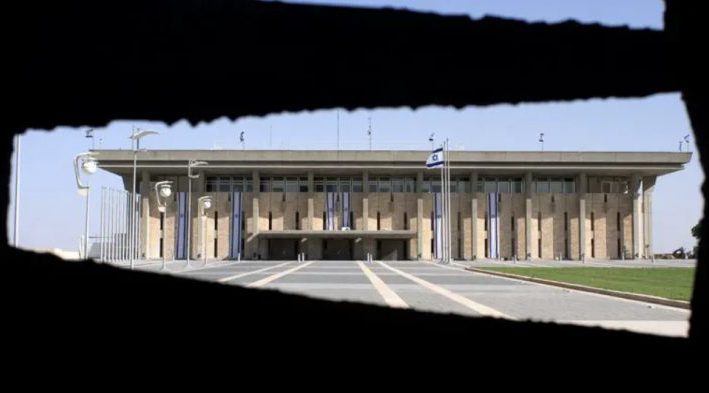Ideological conflicts now run deeper than ever, and Israel may be the only country where these internal rifts intensify with each generation. Opinion.
The deep political divide between left and right in Israel reflects a more fundamental rift between those who envision the Jewish state as primarily liberal-democratic, and those who see it as primarily Jewish—ethnically, religiously, and on certain issues, legally.
While the wisest minds understand that many of the finest values of Western civilization originate in the worldview of the Hebrew Bible, the conflict between a halakhic state and modern liberal democracy is ultimately irreconcilable. Halakha and contemporary understandings of individual and collective rights do not align, and no philosophical or legal finesse will bridge this gap. Realizing this, a halakhic state is perhaps the dream but certainly not the goal of Israel’s religious parties, whille a recognizably Jewish state that preserves the continuity of the Jews as a people is.
The growing tension within Israeli society, however, could eventually cause the state to implode—unless ideological rigidity on certain key issues gives way to political realism. It’s time for both Israeli citizens and the Jewish diaspora to recognize a simple truth: successful states, regardless of appearances, subordinate ideology to pragmatism. That pragmatism has a name—Realpolitik.
Applying Realpolitik to Israel means recognizing that both the state’s democratic character and its Jewish identity are immense assets—but also that either can become liabilities when taken to extremes. Diluting Israel’s Jewish character in the name of liberal democracy is as dangerous as exempting tens of thousands of able-bodied men who ar not really in yeshivas from contributing to the national defense in the name of religious piety.
For a people whose greatest achievements have often been in the realm of spirit and thought, sidelining ideas in favor of Realpolitik may sound like heresy. Yet history teaches otherwise: every successful nation has prioritized reality over ideas, and practical solutions over moral idealism. There is something fundamentally goyish—foreign to traditional Jewish life—in wielding state power.
One could even argue that the original Zionist pioneers were deeply un-Jewish in temperament. The desire to be a “free nation in our own land” was logical after the Shoah. But long before that, from the first Zionist Congress in 1897, there was little rational—or traditionally Jewish—about draining swamps as peasant-pioneers in Ottoman Palestine instead of prospering in the “Goldene Medine.” After two thousand years of exile, only one segment of religious Jewry was ready o act on the belief that the Torah mandates living in the Holy Land and rebuilding it.
That early Zionist drive was thus Quixotic. And Don Quixote, for all his virtues, was no Jew.
Yet as Israel has grown older and stronger, its Jewish character has grown more assertive—sometimes in admirable ways, sometimes in troubling ones. Ideological conflicts now run deeper than ever, and Israel may be the only country where these internal rifts intensify with each generation.
Worse, the daring spirit of early Zionism has given way to a political leadership that, in some respects, resembles the hesitant diaspora Jew more than the bold pioneers. Recent reports—uncontested by the Prime Minister’s Office—that Israel has assured Washington it will wait for American approval before striking Iran are more than disheartening. They are a disgrace.
These assurances not only gave the U.S. a blank check to negotiate freely with Iran, but they also rob American negotiators of one of their strongest bargaining tools: the credible threat of unilateral Israeli action. They also strip the U.S. of any pretense of neutrality, binding Israel’s hands and transforming any potential Israeli strike into what will be seen as an American act of war—justifying Iran’s closure of the Strait of Hormuz and triggering global economic woes.
In effect, Israel’s government has handed the Ayatollahs a strategic victory.
Had Israel made it clear that it will act independently, with or without Washington’s blessing, American diplomats would now be negotiating from a position of far greater strength.
To prevail, Israelis must embrace Realpolitik as a compass in both domestic and international affairs. Only by pursuing the strengthening of the state—economically, militarily, socially—can Israeli society harmonize the best of its Jewish and democratic traditions. And only foreign and security policies grounded in realism, not moral grandstanding, can ensure the survival and flourishing of Zionism.
Rafael Castro is an independent political analyst and a graduate of Yale and Hebrew University. A Noahide Italian, Rafael can be reached at rafaelcastro78@gmail.com





